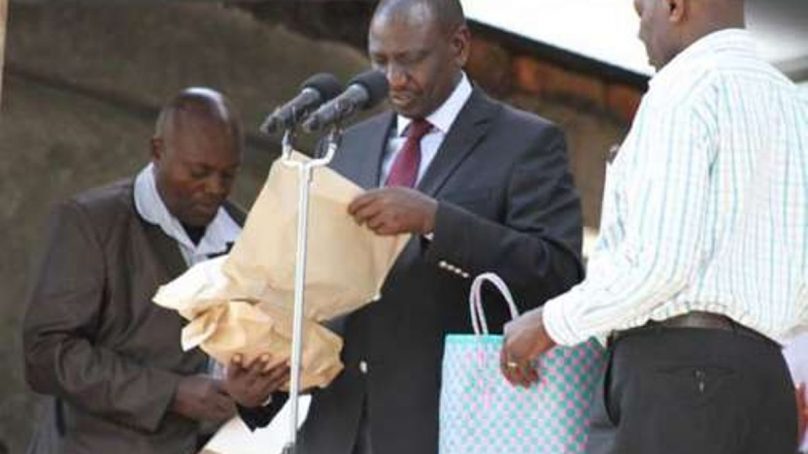In a country where elections have often teetered on the edge of trust and turmoil, the nomination of Erastus Edung as Chairperson of the Independent Electoral and Boundaries Commission (IEBC) is causing ripples below the surface.
Officially, he denies any personal or familial relationship with former Turkana Governor Josephat Nanok. But beneath that carefully worded denial lies a deeper truth—Edung owes his rise to powerful political networks.
His time as Nanok’s legal advisor and Nanok’s current closeness to the State House demand urgent public scrutiny ahead of the 2027 elections.

How Erastus Edung’s Turkana Past Trails His IEBC Future
Erastus Edung’s professional record starts in Turkana County, where he served as County Attorney during Josephat Nanok’s time as governor. For four years, Edung was Nanok’s legal right hand—crafting policy, navigating legal storms, and shaping governance strategy.
While Edung insists this relationship was strictly professional, critics are not convinced. In Kenya, where political appointments often reward loyalty rather than merit, connections matter more than words. Nanok is no ordinary political figure. He’s now a key operative in President William Ruto’s administration—serving in a senior advisory capacity within State House. That places him at the center of executive power.
So when Ruto handpicked Erastus Edung to head the country’s electoral body—a role critical to the legitimacy of elections—it raised a legitimate question: is Edung’s nomination part of a broader plan to tighten political control over the IEBC?
Ruto’s administration is under pressure to ensure the 2027 elections are free, fair, and independent. But placing a man who owes much of his public career to a State House insider at the IEBC’s helm sends the wrong message. It places the electoral body in a political minefield just when it needs public trust the most.
Edung’s defenders argue that his experience in public legal service qualifies him for the job. But experience alone does not assure independence. What Kenyans must examine is whether his loyalty lies with the Constitution or with the network that elevated him.
Nanok’s Influence in Edung’s Rise
The bond between Josephat Nanok and Erastus Edung may not be familial—but it is undeniably political. Edung served Nanok through critical years in Turkana, shaping decisions that affected budgets, appointments, and policies. Their alliance was forged in power, not blood.
When Nanok transitioned to national politics, aligning himself with President Ruto, he brought with him a team of trusted allies. According to multiple insiders in Turkana’s political circles, Edung remained part of that inner circle, even after leaving county service in 2022.
His nomination to head the IEBC, therefore, cannot be viewed in isolation. It fits into a broader pattern seen across the country: trusted allies of the executive landing powerful oversight roles. For a position that demands neutrality, this nomination sends worrying signals.
If the man responsible for refereeing elections once served a now-powerful state figure—who may have influenced his appointment—how can Kenyans believe the game will be fair?
This is not about personal integrity; Edung may very well be an honest man. But perception shapes legitimacy. If voters believe the referee has a side, then the outcome, no matter how clean, becomes tainted in the public eye.

A Loaded Appointment Ahead of 2027
Kenya’s electoral history is turbulent. From post-election violence to accusations of rigging, the IEBC has long struggled to inspire confidence. With the 2027 elections looming, the new IEBC leadership must rise above suspicion—not drown in it.
That’s why Edung’s ties to Nanok matter. It’s not just about their years in Turkana; it’s about the power dynamics that got him nominated. Nanok’s current presence in State House puts Edung’s impartiality in question. Can a man elevated through political favor truly hold the powerful to account?
During his vetting, Edung insisted that the IEBC operates independently and is guided by the Constitution. He reminded MPs that any misconduct on his part could lead to his removal. But Kenyans have heard such assurances before—and lived through the consequences of broken promises.
What the country needs now is more than constitutional pledges. It needs a chairperson who enters office without the weight of political debts. It needs a commission that commands public trust from the start—not one that must work to erase suspicions of executive capture.
Edung’s nomination does the opposite. It opens the door to doubts, especially as the stakes for 2027 rise. Kenya cannot afford another disputed election. It cannot afford a referee who is seen as an insider rather than a neutral guardian of democracy.










































